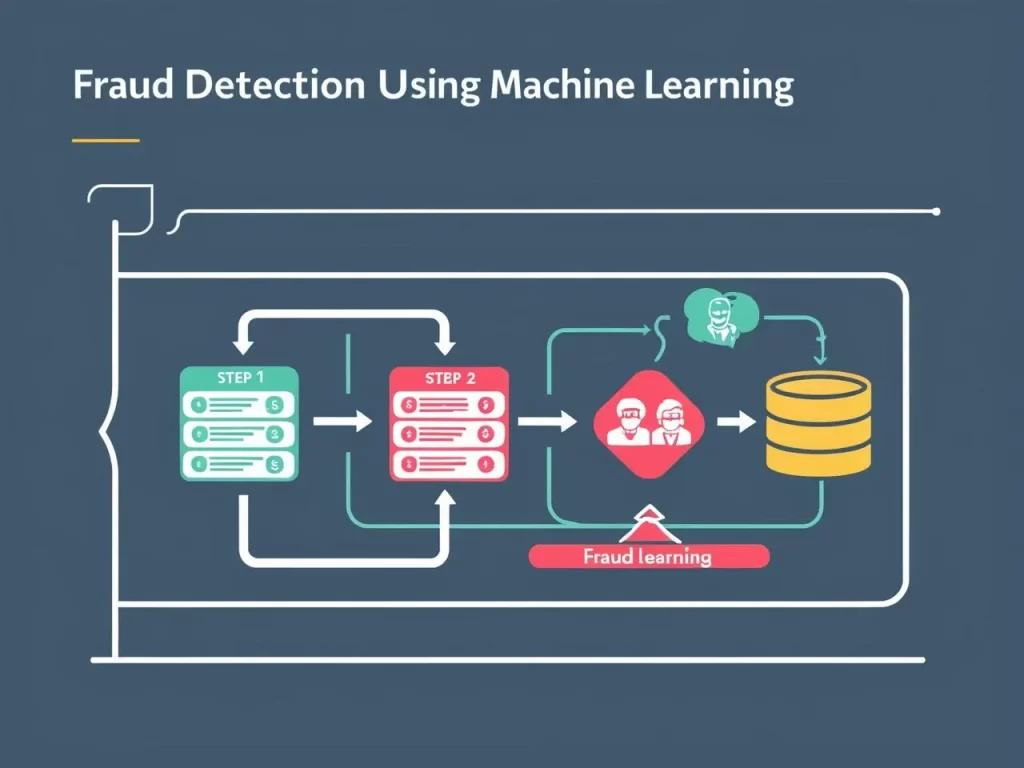Fraud Detection Using Machine Learning
Protect your data and transactions with advanced technologies
Introduction
In Morocco, managing private parking facilities poses unique challenges, particularly in combating fraud. Indeed, issues such as unauthorized access and payment manipulation have become increasingly prevalent. Fortunately, Fraud Detection Using Machine Learning has emerged as a powerful solution to address these concerns.
This case study will explore how a Moroccan private parking company successfully implemented machine learning techniques. By doing so, the company was able to significantly enhance its fraud detection capabilities and improve overall security. Furthermore, we will delve into the specific strategies employed and the impressive results achieved.
Background
The Moroccan private parking industry faces escalating problems with fraudulent activities. Specifically, a leading parking operator in Morocco grappled with issues such as unauthorized access to parking areas, fraudulent payment claims, and permit misuse. Given these challenges, traditional fraud detection methods were proving insufficient.
Consequently, the company sought advanced solutions. The focus then shifted to fraud detection using machine learning, which was seen as a more effective approach to better manage and secure their parking operations.

Challenges
Key Fraud Detection Issues in Moroccan Private Parking
- - Unauthorized Access: Problems with fraudulent entry to parking spaces.
- - Payment Fraud: Revenue losses due to payment manipulation.
- - Permit Misuse: Unauthorized use of parking permits affecting security and revenue.
Solution: How Machine Learning Transforms Fraud Detection
- Unauthorized Access: The company faced significant problems with fraudulent entry to parking spaces, which traditional systems struggled to detect.
- Payment Fraud: Instances of payment manipulation were causing revenue losses and affecting financial integrity.
- Permit Misuse: Unauthorized use of parking permits was frequent, impacting both security and revenue.
Implementation of Machine Learning
How Machine Learning Transforms Fraud Detection in Private Parking
- Data Collection and Preparation: Explain the types of data collected (e.g., transaction data, access logs, permit data) and how the data was cleaned and prepared.
- Model Selection: Detail the use of supervised learning for classification and unsupervised learning for anomaly detection.
- Integration and Deployment: Highlight the integration of ML models with the existing parking management system, focusing on real-time analysis and alerts.
- Training and Testing: Describe the training process and the use of continuous learning to adapt to new fraud tactics.
Results
Achieving Success with Fraud Detection Using Machine Learning
- 50% Reduction in Unauthorized Access
- 35% Reduction in Payment Fraud
- 40% Increase in Effective Permit Monitoring
Key Takeaways for Moroccan Parking Operators
Lessons Learned from Implementing Fraud Detection Using Machine Learning
Leverage Comprehensive Data: Collecting detailed and accurate data from various sources is essential for effective fraud detection using machine learning. Indeed, a robust data collection process forms the foundation of successful ML implementation.
Choose the Right Models: Combining supervised and unsupervised learning models can address different fraud scenarios and therefore enhance detection capabilities. By utilizing both approaches, you can achieve a more comprehensive fraud detection system.
Integrate Seamlessly: Integrating ML models with existing management systems ensures effective machine learning-based fraud detection while avoiding disruption to operations. This seamless integration helps in maintaining operational efficiency and maximizing the effectiveness of your fraud detection efforts.
Continuous Monitoring: Regular updates and monitoring of ML models are crucial for adapting to new fraud techniques and maintaining accuracy. Moreover, ongoing evaluation ensures that your system remains effective against evolving threats.
Future Prospects
The Future of Fraud Detection Using Machine Learning in Moroccan Parking and Beyond
The success of this case study demonstrates the significant potential of fraud detection using machine learning in other sectors and regions. Moreover, future advancements are likely to include integrating machine learning with additional technologies, such as IoT sensors and blockchain. By doing so, organizations can further enhance both security and operational efficiency.
Conclusion
BVLab’s Verbatix solution delivered a game-changing approach to document management for the telecom company. By harnessing the power of machine learning and natural language processing, Verbatix automated what was once a tedious and time-consuming process. As a result, the company experienced significant improvements in productivity, cost efficiency, and decision-making capabilities.
In today’s fast-paced business environment, tools like Verbatix provide a competitive edge by streamlining workflows and enabling employees to focus on more high-value tasks. For any organization dealing with large volumes of documents, implementing an AI-driven solution like Verbatix is no longer just an option—it’s a necessity for staying ahead in the digital age.
Transform Your Fraud Detection Capabilities with Machine Learning Today
Is your private parking business ready to take the next step in fraud detection? If so, contact us today to explore how fraud detection using machine learning can be tailored to meet your specific needs. By doing so, you can significantly enhance your operations and security in Morocco. Don’t miss out on the opportunity to revolutionize your fraud detection strategy.